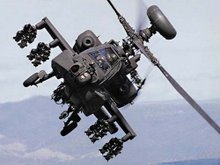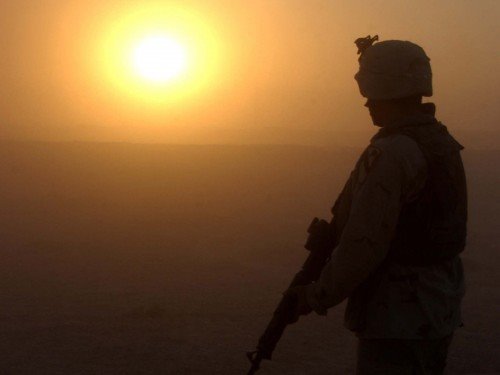Military
Criminal Defense Lawyer (Former JAG Attorney) News:
Another year has come to an end, and it was
another gratifying year of defending those who defend us! We want to
sincerely thank our clients for allowing us the privilege of representing them
and their families. Thank you all so much for your service and your
sacrifice!
As former military
defense JAG lawyers, and now as civilian court-martial defense attorneys, we
strive to help military members and their families during very difficult
times. Therefore, we measure the term “success” by how well we were able
to help our clients and their families with outcomes that positively resolved
the military cases, allegations, adverse actions and investigations they faced
– not by our financial bottom lines.
Looking back on 2016,
it was marked by positive outcomes and grateful clients – from court-martial
trials dropped and won to successful appeals and responses to other military
adverse actions and discipline. These outcomes are extremely gratifying
for us. Some of the successes from this past year have been documented in
our blog (when we have time to post updates). For the fourth straight
year, I received the Avvo client’s choice award for military law in 2016.
This past year, I defended,
represented, advised, counseled or otherwise assisted clients and/or handled
cases out of:
- FT Hood (Killeen, Texas)
- FT Carson (Colorado Springs, Colorado)
- FT Smith (Arkansas)
- Naval Air Station Pensacola (Florida)
- Naval Station Everett (Washington
State)
- Fort Meade (Maryland)
- JB Andrews AFB (NCR, Washington DC
area)
- JBSA Lackland AFB (San Antonio, Texas)
- JBSA Randolph AFB (San Antonio, Texas)
- Tyndall AFB (Panama City, Florida)
- MacDill AFB (Tampa, Florida)
- Robins AFB (Warner Robins, Georgia)
- U.S. Air Force Academy (Colorado
Springs, Colorado)
- Peterson AFB (Colorado Springs,
Colorado)
- Kirtland AFB (Albuquerque, New Mexico)
- Shaw AFB (Sumter, South Carolina)
- Eglin AFB (Ft Walton, Destin area, Florida)
- Dyess AFB (Abilene, Texas)
Some of the cases,
allegations and military law issues I handled this past year included:
- Rape, Sexual Assault,
Sexual Misconduct (UCMJ Article 120)
- Forcible Sodomy (UCMJ
Article 125)
- Larceny, Wrongful
Appropriation, BAH Fraud, PCS Fraud, Travel Voucher Fraud (UCMJ Article 121)
- Insubordination,
Failure to Obey Lawful Orders, & Dereliction of Duty (UCMJ Articles 91
& 92)
- Drug Offenses:
Wrongful Use, Possession, Introduction, Distribution of Controlled Substances
(UCMJ Article 112a)
- Physical Assault and
Assault Consummated by Battery (UCMJ Article 128)
- Child Abuse
- False Official
Statement (UCMJ Article 107)
- Conduct Unbecoming an
Officer and Gentleman (UCMJ Article 133)
- Joint Federal Travel
Regulation (JFTR) fraud
- UCMJ Article 134
offenses including:
- Adultery
- Fraternization
- Sexual
Harassment
- Solicitation of Prostitution
- Receipt,
possession and/or distribution of child pornography
- Obstruction of
Justice
Some of the adverse
actions I have defended against this past year have included:
- Court-martial trials
and court-martial clemency (general court-martial and special court-martial)
- Administrative
discharge boards, administrative separation boards
- Officer Elimination
Actions, Board of Inquiry (BOI)
- Senior Officer
Investigations and Discipline
- Officer Grade
Determination (OGD)
- Article 15,
Nonjudicial Punishment (NJP)
- Performance report
appeals (OER, NCOER, OPR, EPR)
- Board for Corrections
of Military Records (BCMR) appeals in different military branches
- Discharge Review
Board (DRB) appeals in different military branches
- Medical Evaluation
Board (MEB) and Physical Evaluation Board (PEB) cases in different military
branches
- Medical
De-Credentialing, Privileging Actions
- Flying Evaluation
Boards (FEB)
- Freedom of
Information Act (FOIA) requests
- Military Academy
discipline, disenrollment, boards, and appeals
Here are some links to
blog posts and articles describing the outcomes of some of my 2016 cases:
We are very thankful
for the successful outcomes we have been able to secure for our clients this
past year. For ease of researching, here
are links to my year-end blog posts, and case outcomes, from recent previous
years:
2015 Year-End Blog Post:
2014 Year-End Blog Post:
2013 Year-End Blog Post:
2012 Year-End Blog Post:
2011 Year-End Blog Post:
As we always warn,
while the military court-martial trials and other military cases described in
our blog posts were successfully defended against, it is important to
understand that every case has different facts, evidence, and participants, and
success in previous military courts-martial and military cases does not
guarantee success in any particular future court-martial or military
case. No military lawyer or civilian defense lawyer, including those who
specialize in military law, can guarantee the outcome of any military case or
military trial.
Given the potential
consequences to military careers, families and personal freedom when facing
military discipline, adverse action and/or court-martial trial, it is critical
to be defended by a lawyer with experience in military law. For
those seeking assistance, we offer free initial case consultations.
Please
contact us by:
Toll Free
Phone: (800) 988-0602
E-mail: militarylawfirm@gmail.com
Website: www.militaryadvocate.com
Attorneys:
In the News:
Recent Reviews:
By: Attorney Richard
V. Stevens
Civilian criminal defense lawyer and military defense lawyer
Military Defense Law Offices of Richard V. Stevens, P.C.
http://www.militaryadvocate.com
Civilian criminal defense lawyer and military defense lawyer
Military Defense Law Offices of Richard V. Stevens, P.C.
http://www.militaryadvocate.com
Blog postscript: Attorney Frank J. Spinner and I (attorney
Richard V. Stevens) are former active duty military lawyers (JAG). Our
perspectives and advice, therefore, are based upon our experience as military
defense lawyers and as civilian criminal defense lawyers practicing exclusively
in the area of military law and military justice. This blog addresses issues in
military law, military justice, military discipline, military defense,
court-martial practice, the Uniform Code of Military Justice (UCMJ) and other
military and/or legal topics. Nothing posted in this blog should be substituted
for legal advice in any particular case. If you seek legal advice for a
particular case, please contact The Law Offices of Richard V. Stevens and The
Law Office of Frank J. Spinner for a free consultation. These military defense
law offices are located in Colorado Springs, Colorado and Northern
Florida/Georgia areas, but the military defense representation is worldwide –
when necessary, the attorneys travel to wherever the client is stationed around
the world.

































